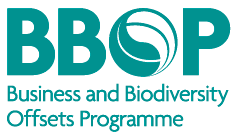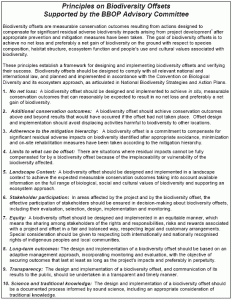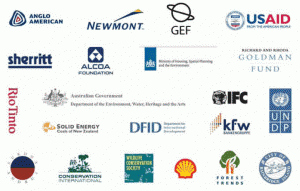 Captains of Industry often get a bad press. Their public image is as an exceptionally wealthy older man sitting in a glass tower, possibly stroking a white cat and waiting for the day the James Bond of regulation finally arrives.
Captains of Industry often get a bad press. Their public image is as an exceptionally wealthy older man sitting in a glass tower, possibly stroking a white cat and waiting for the day the James Bond of regulation finally arrives.
As the wheel of sustainability turns, many may be starting to realise that mandatory meaningful reporting is approaching at an increasing speed.
However, if they look around at schemes such as GRI, AA1000 and SA8000 they discover well established standards which others have helped to build. Where can they leave their mark and show they truly do care?
One answer is the Business and Biodiversity Offset Program (BBOP), which has just completed Phase I and is now looking for a broad range of industries to get involved in Phase II.
What’s Biodiversity Offsetting All About?
Offsetting is all about achieving a neutral position where the scales of consumption and availability are equally balanced.
Thus carbon offsetting revolves around creating carbon sinks to absorb GHG emissions produced, and water offsetting tends towards balancing out water use with schemes to increase supplies in the third world.
Usually the common thread is that the offset appears to be a sop to the guilty conscience, displacing damaging activity from where it happens to some other place in the world.
BBOP eschews this trend, specifically requiring that the offset happens in situ and with a measurable result that “no net loss and preferably a net gain of biodiversity” has taken place.
Furthermore it embraces not just the natural ecology of a locale but also the human ecology, specifying that any impact upon the lifestyles of indigenous people in the area must also be accounted for.
What Business Tools Have Been Produced?
Central to the output of Phase I is a statement of Ten Principles which are supported by all the members of the BBOP Advisory Committee. These address issues of:
- natural ecology: ensuring that biodiversity is preserved and conservation enhanced
- human ecology: ensuring that all stakeholders are participants and beneficiaries in the project and its outcomes
- implementation: recognising that measurable outcomes and transparent processes embrace both local and scientific knowledge
Supporting these principles is a set of handbooks which address offset design, potential cost-benefits, and offset implementation.
These are further underpinned by a variety of resource papers, appendices and case studies.
Who Is Involved In BBOP?
BBOP is now embarking upon Phase II, which is due to run to 2011. One of the significant challenges it faces in this time is expanding its base of industries involved in the Advisory Committee.
The Committee already boasts international NGOs such as WWF, the Botanical Society of South Africa, the London Zoological Society and the National Ecology Institute of Mexico.
It also embraces government organisations from North America, Africa, Australasia and Europe as well as the United Nations Development Programme.
However the corporations involved are narrowly focussed upon the extractive industries, including Anglo American, Rio Tinto and Shell International.
Why Get Involved With BBOP?
At present all commercial business, manufacturing and production industries are totally unrepresented within BBOP.
This is important because there are definite parallels between the measurable outcomes of BBOP and the protocols of GRI G3.
In particular BBOP covers the GRI environmental protocols EN12, EN13 and EN14 (about mitigating impact upon biodiversity) and the human rights protocol HR9 and society protocol SO1 (about impact on local communities).
Having a means of measuring and reporting these protocols which understands the needs of your industry is obviously of vital importance.
This is doubly true if your business is aiming for A or A+ GRI application level, where several of these protocols are mandatory.
Involvement leading to results
Getting involved with BBOP seems like a perfect opportunity to ensure the quirks of measuring your business’ impacts upon biodiversity and communities are taken fully into account.
After all, Anglo American, Rio Tinto and Royal Dutch Shell are among the handful of extractive industries to have filed A+ GRI reports this year.
They’ve surely benefited from their involvement with BBOP, especially given that the guidance to date reflects some of the issues they’ve been most heavily criticised for in the past.
The door is open : you’d need a pretty good excuse not walk through it.
Lucy is Editor at Corporate Eye

